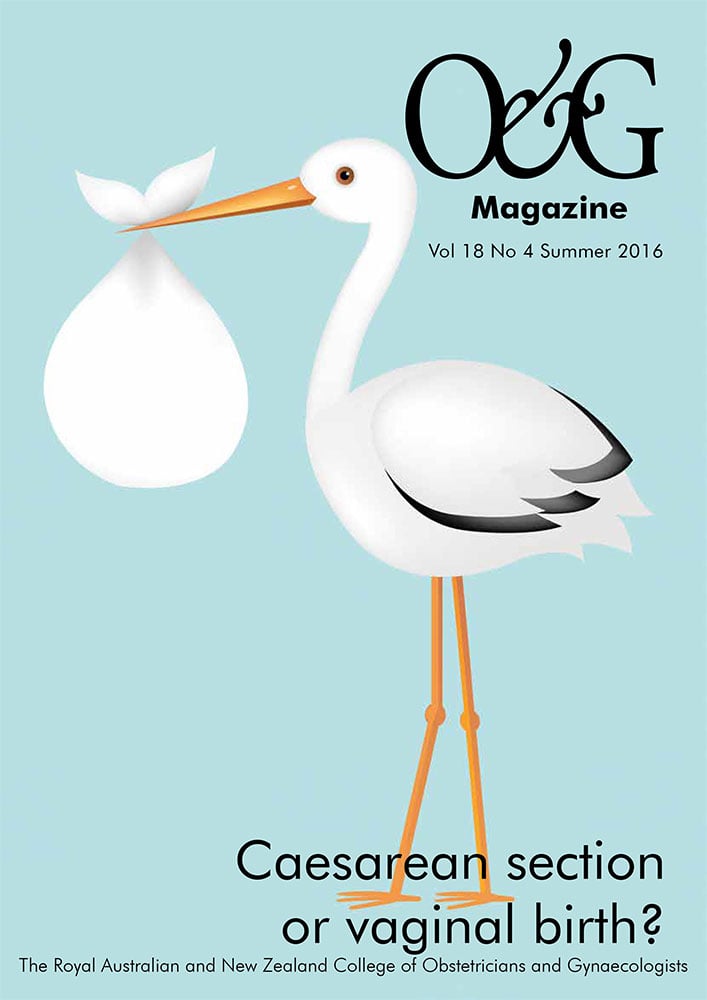Prof Ronald Jones opened his eulogy 1 to Dr Doris Gordon (1890–1956) with the bold statement, ‘It could be argued that Doris Gordon has made a greater contribution to the health and welfare of New Zealand women and children than any other individual.’ Yes, Dr Doris (as she was usually called) did much to improve obstetrics but it could also be argued that by opposing contraception and abortion on medical, moral, racist and pronatalist grounds she also did great harm. Progress on these essential matters of reproductive health was delayed by many decades, at least in part, because of her negative influence.
In her 1937 book Gentlemen of the Jury2 she wrote: ‘Birth-control information, which was meant to benefit the few, has become a way of escape from duty for the majority. Individually and collectively the best elements of civilization are hastening to exterminate themselves with their new-found knowledge. It is not the purpose of this book to maintain that birth control is at all times wrong. There are times and occasions when it is right and justifiable. It is worth remembering, however that the abuse of birth control knowledge in New Zealand has already reduced this country to a dangerous state of stagnation and, coupled with the rising tide of abortions, threatens in a very few years to extinguish its white people.’ She was not alone in espousing racist and eugenicist views.
In an appendix to the book, the Dean of Otago University Medical School, Sir H Lindo Ferguson, and the Professor of Obstetrics, JB Dawson, wrote with authoritarian arrogance:3 ‘The problem was by no means limited to New Zealand but is one concerning most of the peoples of our Western civilization. Hitler in Germany and Mussolini in Italy are both alarmed at the declining birth rate of those countries and have inaugurated crusades against contraception and abortion.’
Doris’s opposition to birth control was not due to lack of knowledge. She knew enough to advocate birth control when she considered it medically necessary, but recommended it be provided in a restricted way through doctors and hospital clinics (although none were established). Her strong Christian beliefs and missionary zeal conveniently aligned with the prevailing ultraconservative views of the medical establishment regarding contraception and abortion, but it is underestimating her intelligence to say she merely reflected contemporary views. She could be opinionated, and was not afraid to challenge orthodoxy, e.g. she differed from her colleagues in recommending female sterilisation after multiple pregnancies affecting the health of the woman.
She denigrated the efforts of birth control promoters elsewhere to prevent unplanned pregnancies and unsafe abortions. Margaret Sanger (1879–1966) opened the first birth control clinic in the USA in 1916. In 1921, she founded the American Birth Control League, the precursor of today’s Planned Parenthood Federation of America. Doris would have been well aware of her leadership in this field.
In England, Dr Marie Stopes (1880–1958), not a medical doctor, wrote her 1918 best seller Married Love. Some countries (including Australia) banned it, but New Zealand did not. Marie Stopes’s second book, Wise Parenthood, published later that year, dispensed more detailed advice on contraception for married couples. In 1923, she published Contraception Its Theory, History and Practice: A Manual for the Medical and Legal Profession. Doris disapproved of ‘mechanical devices’ and the widespread use of preventives, especially by single men and women. She wrote disparagingly of Marie Stopes4 and asserted her birth control propaganda had tragic repercussions. Worst result of all, she said, there crept into feminine psychology the thought, ‘If it is not wrong to prevent it, is it wrong to abort it?’.
Ettie Rout (1877–1936), Australia and New Zealand’s sexual health pioneer, who campaigned for venereal disease prophylaxis in First World War troops, was the type of emancipated woman Doris decried. Although Doris was able to combine family life and a career because of a supportive husband, she criticised emancipation in others. In her own words,5 ‘Franchise, Freedom and Babies do not harmonise …There is only one calling in which modern Woman has failed – a calling in which poor despised grandmother succeeded – the task of keeping the cradles reasonably full … We applaud women’s emancipation but only to the degree that Woman can never outwit her destiny. Motherhood is the one true sense in which she is both the servant and the warden of humanity.’ Doris considered emancipation the fundamental reason for the high number of abortions.
While Doris’s contemporaries Margaret Sanger, Marie Stopes and Ettie Rout were forward thinking regarding contraception, none favoured abortion, largely because of the safety risks in those pre-antibiotic days. It is not surprising that Doris publicly and vehemently opposed abortion, but she could be accused of duplicity because she was known to help women who, in her opinion, were deserving cases. The accepted medical convention was that ‘therapeutic abortions’ were only possible when pregnancy posed a serious risk to the woman’s health. Such medical dominance in decision-making was typical of Doris’s domineering manner. To modern feminists, this is no longer acceptable, negating, as it does, the autonomy and decision-making ability of women. Regrettably, the attitudes of the 20th century persist in New Zealand’s abortion laws.
Prof Jones correctly describes Gentlemen of the Jury as a controversial polemic about the problem of illegal abortion. Her co-author, Dr Francis Bennett, later distanced himself from the publication writing in his autobiography:6 ‘She [Doris] once wrote a lengthy denunciation of the abortionist and sent it to me for literary criticism. I thought it was awful and wrote and said so. She then appeared guest-like on my doorstep and was taken in. All the spare time of the next week was spent in literary conference. It was a hopeless collaboration. She amended the text behind my back. I did the same to her. Eventually we sent it to Professor Dawson. It came back, reduced to half and red-pencilled on every page. It next went to the advertising firm in Wellington which was going to publish it. Here it was re-written by a member of the staff. In its published form it was a very bad book.’
Any discussion of birth control, abortion and eugenics highlights the dilemma of criticising past contributors for their inability to disengage from prevailing establishment views. Prof Jones does not mention Doris’s support of the eugenics movement, which was fashionable with many intellectuals at the time (including Margaret Sanger, Marie Stopes and Ettie Rout). In the light of modern thinking, the eugenic arguments are specious.
Prof Jones is to be congratulated for untangling the web surrounding the defunct Doris Gordon Memorial Trust and enlisting the support of the Royal Australian and New Zealand College of Obstetricians and Gynaecologists (RANZCOG) and National Council of Women of New Zealand (NCWNZ) in the formation of a new trust to access the available funds. Establishing an annual Doris Gordon memorial lecture, striking a new Doris Gordon medal and awarding this and an honorarium to the lecturer are more contentious. As an energetic, articulate and influential woman, Doris is respected for her significant contributions, but in bestowing a prestigious honour, a higher than usual standard of critical appraisal and due diligence is warranted, indeed expected. Indisputably offensive beliefs cannot be selectively dismissed as having no bearing on her legacy. In glorifying Doris, RANZCOG and NCWNZ are subtly endorsing some of her negative attitudes. Past prejudices are still apparent in the discrepancies between the health of Maori and Pakeha women.
Prof Jones could have mentioned that a memorial to the New Zealand Obstetrical and Gynaecological Society remains today as the Postgraduate Scholarship in Obstetrics and Gynaecology administered by the Faculty of Medicine, University of Otago. The origin of this scholarship dates back to funds gifted in 1931 to the University of Otago for the New Zealand Obstetric Travelling Scholarship. With the establishment of training by RANZCOG, the scholarship was amended in 2004 and again in 2014 to remove the restriction on part-time study. The scholarship is open to College Members or Fellows or Registrars undertaking the Integrated Training Program (ITP). Valued at $25,000, plus tuition fees up to $9000, it is primarily to assist recipients to carry out research while enrolled in a higher research degree.
By choosing not to honour one particular person (as no doubt many were involved), by amending the constitution and allowing the scholarship to evolve with changing circumstances, the University of Otago has demonstrated it is possible to be flexible while still honouring the intent of the original donors, the New Zealand Obstetrical and Gynaecological Society.
In defence of Doris, no one is perfect. She was a product of her time. However, the wrongs of the past cannot be glibly dismissed. Memorialising and venerating only part of her legacy is a distortion of reality. Historically, Doris’s attitudes, and those of many of her contemporaries, have contributed to our present day racism, sexism and the entrenched stigma surrounding abortion. It is important that this is acknowledged, although it may take some negotiating given that the trust deed states that the founding work of Doris Gordon must be considered when dispersing funds.7
RANZCOG and NCWNZ must demonstrate to their members, and to the public, that these valuable funds from another era are used prudently for the benefit of all aspects of women’s health. It is an opportunity to show true leadership in meeting the challenges of the 21st century.
References
- Jones RW. Honouring Doris Gordon: the foundation of a legacy. O&G Magazine. Spring 2016; 18(3):69-72.
- Gordon DC, Bennett F. Gentlemen of the Jury. New Plymouth: Thomas Avery; 1937:17-18.
- Ibid, p. 136.
- bid, pp. 38-39.
- Ibid, pp. 39-41.
- Bennett F. A Canterbury Tale: The Autobiography of Dr Francis Bennett. Wellington: Oxford University Press; 1980:167.
- Trust Deed for the Doris Gordon Memorial Trust 30 July 2015.






Leave a Reply